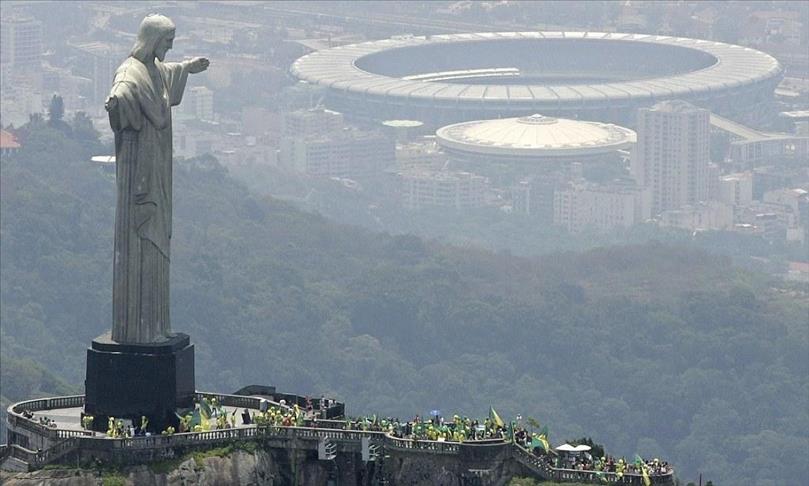Brazil ends interest rate hikes as real falls to new low
Benchmark interest rate held steady as economy battles worst recession in 25 years

By Ben Tavener
SAO PAULO
Brazil ended a cycle of aggressive interest rate hikes Wednesday, in a bid to shore up Latin America's biggest economy as it faces its worst recession in 25 years.
The central bank's monetary policy committee, known as Copom, decided to hold steady Brazil's benchmark Selic interest rate, after economists predicted creeping inflation may have peaked in August.
The rate was held after seven consecutive hikes.
Inflation was reported at 9.57 percent annualized in the month to mid-August, despite an official target of 4.5 percent.
"Evaluating the macroeconomic scenario, the outlook for inflation and the current balance of risks, Copom decided unanimously to hold the Selic rate at 14.25 percent," according to a statement by Copom. "The committee understands that holding the basic rate of interest at this level, for a sufficiently prolonged period of time, is necessary in order to bring inflation to target at the end of 2016."
The Selic had been increased at every committee meeting since September 2014, from which it has risen 325 basis points and is now the highest among the 10 leading global economies.
The decision came as the Brazilian real closed at a new 12-year low of 3.76 reais against the dollar, which strengthened nearly 2 percent on Tuesday's close. The dollar has gained more than 40 percent on the real since the start of 2015.
The real's depreciation has been worsened by concerns about the Chinese economy, but ongoing domestic political and economic crises, which experts believe could lead to Brazil losing its prized investment-grade rating, have weighed heavier.
Fractious relations between President Dilma Rousseff's government and Congress, as well as rumors that Joaquim Levy could be forced to step down as finance minister, have also unsettled the markets and made investors recoil.
Rousseff met with the country's two congressional leaders this week in a bid to soothe relations, after Vice President Michel Temer recently stepped down as the president's political go-between.
The outlook for the economy suffered another setback Monday when the government presented Brazil's first-ever budget proposal with a deficit, following an embarrassing climbdown on plans to revive an unpopular levy on financial transactions, CPMF.
Ministers have urged Congress to work with the government to find a solution to plug a 30.5 billion real ($8.1B) shortfall calculated in the 2016 federal budget.
Speaking to reporters in Brasilia on Wednesday, Rousseff acknowledged the deficit "clearly showed that there is a problem," but she refused to rule out any measures to bridge the shortfall, including CPMF.
It was also confirmed last week that Brazil had entered recession, shrinking 1.9 percent in the second quarter of 2015, amid forecasts the economy would shrink 2.26 percent in 2015 and 0.4 percent in 2016.
The bleak political and economic scenarios have been compounded by wilting confidence in Rousseff's ability to govern, amid ongoing calls for her impeachment for a sprawling corruption scandal at state-run oil giant Petrobras.
Anadolu Agency website contains only a portion of the news stories offered to subscribers in the AA News Broadcasting System (HAS), and in summarized form. Please contact us for subscription options.

